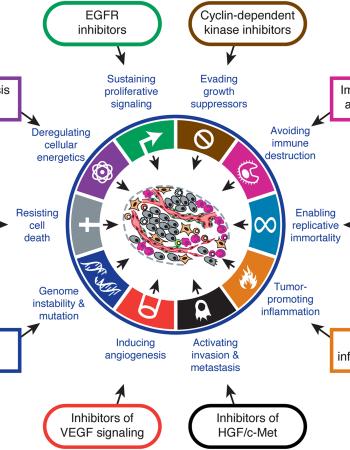Use of multi-walled carbon nanotubes (MWCNTs) stabilized in Arabic gum colloidal solution to induce genotoxicity and apoptosis of human breast and lung cancer cell lines
Introduction: Increased mortality owing to breast and lung cancer is an urgent global medical issue. Nanotherapy is one of the most widely used and recent procedures for combating cancer. Therefore, this study aimed to assess the beneficial effects of multi-walled carbon nanotubes (MWCNTs) to precisely target breast (MCF-7) and lung cancer (A549) cell lines. Multi-walled carbon nanomaterials are considered as a typical biocompatible nanomaterial that can be used in drug delivery without causing side effects. On the contrary, the metallic nanoparticles, even that of noble metals, are reported to have side effects that are still unavoidable.
Methods: The MWCNTs were purified and stabilized using Arabic gum in an aqueous solution under ultrasonic radiation. Scanning and transmission electron microscopy (SEM and TEM, respectively) were employed to characterize the morphology of the MWCNTs, and elemental analysis was performed using SEM to determine their chemical composition.
Results: The investigated MWCNTs had an average diameter of 10–12 nm and were mainly composed of 99.4% carbon and other trace elements. The Arabic gum emulsifying agent was found a powerful stabilizing agent for the investigated MWCNTs in aqueous solutions. The cytotoxic effect of the MWCNT/ Arabic gum colloidal solution on MCF-7 and A549 was evaluated by 3-(4,5- dimethylthiazol-2-yl)-2,5-diphenyltetrazolium bromide and lactate dehydrogenase assays, and the expression of apoptosis-related genes was assessed using quantitative real-time polymerase chain reaction and a human apoptosis signaling antibody array. This analysis aimed to clarify additional pathways involved, including those mediated by interleukin-1, tumor necrosis factor-α, and ceramide signaling pathways enrichments. Concerning the inhibition of cell growth, the efficacy of MWCNT/Arabic gum IC50 of MCF-7 (48.23 μg/mL) was higher than IC50 of A549 (100.1 μg/mL). MWCNT/Arabic gum enhanced the mRNA expression of apoptosis-associated genes encoding P53, Bax, and Caspases (9, 8, and 3). Upregulation of the apoptotic signaling pathway in the MCF-7 cell lysates was observed before and after exposure to the MWCNT/Arabic gum colloidal solution.
Conclusion: The physicochemical properties of MWCNT/Arabic gum exhibited remarkable apoptotic activity in breast and lung cancer cell lines. However, further in vivo investigations are recommended to clarify the other molecular aspects related to the use of MWCNT/Arabic gum.

Introduction: Increased mortality owing to breast and lung cancer is an urgent global medical issue. Nanotherapy is one of the most widely used and recent…

Nanosized lanthanum oxide particles (La2O3) are commonly utilized in various industries.

